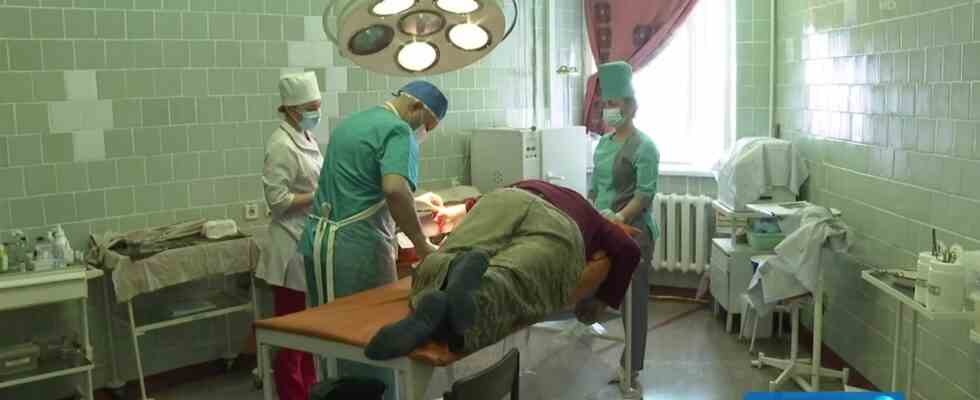report
Status: 05/05/2022 11:27 a.m
In the hospital in the Ukrainian city of Chernihiv there are patients who survived Russian air raids and are now scarred for life. A young doctor talks about his everyday work – and wounds for which his studies did not prepare him.
Ihor Handoga longs for a break. It doesn’t have to be anything big, no travel – just a few days at home, drinking a coffee in the sun. “I’ve been living more or less in the hospital since the beginning of the war,” says the young doctor. “Especially at the beginning we operated day and night”. Handoga works at City Hospital Number 2 in the Ukrainian city of Chernihiv, near the Belarusian border.
As he walks down the halls, the 34-year-old says that his medical studies have only partially prepared him for what he has experienced in the past two months. “We saw a lot of injuries that we didn’t know before the war. Mines, for example – on legs and amen; serious open fractures, amputations… simply very big wounds.”
In theory, of course, he knew what to do, he says. But you first have to manage it psychologically, to be so focused that you only see the anatomical structure: arteries, veins, ligaments and tissue – and not these shocking wounds.
Doctors at the limit: report from a hospital in Chernihiv
5/4/2022 10:24 p.m
“I only felt pain”
The 72-year-old pensioner Katja was not prepared either. She’s on the fourth floor of the hospital. The little finger is missing from each of her hands. And then she uncovers the covers – the lower left leg has also been amputated. “On March 16, I was in line to buy bread,” she says. “None of us noticed the plane. And then it hit us. I only felt pain. Everyone was on the ground.”
Several people died in this bombing. Katya was lucky. It was still traumatic. She saw her shin bone, lots of blood. A taxi driver drove her to the hospital. Again and again he spoke to her on the journey. “He wanted me to stay conscious”. He also asked what her name was. “He wanted a name,” she says, “so he knows who to tell if I die in his car.”
Sweet smell of wounds in the air
There are many fates like Katja’s in Chernihiv. After the failed march on Kyiv, the Russian troops retreated back across the border to Belarus. But the wounds of war hurt and fester here for a long time.
There is a sweet smell in the air in Oleg’s room. The bandage on the leg shows green, yellow and dark red-brown spots. Oleg was also injured in an air raid: “We were having dinner. Then the bombs came.” His son tried to stop the bleeding with “a braid” made of towels. “I knew right away that I was crippled.”
View into a treatment room in the city hospital number 2 in Chernihiv.
He never believed that Russian troops would ever move into his hometown – “not even when they moved up to the border in January”. And then it happened: “They bombed, burned everything down. There is no forgiveness from me – God will judge them.”
Ihor Handoga is working on Oleg at least being able to move on his own again. He will be operating on him again shortly. The doctor is optimistic that Oleg can do it with crutches. For the 72-year-old Katja, that’s probably no longer possible. “I’m lying here on the fourth floor – I won’t be able to get out alone anymore,” she says. But at least she can hold a spoon again – even without her little fingers.

